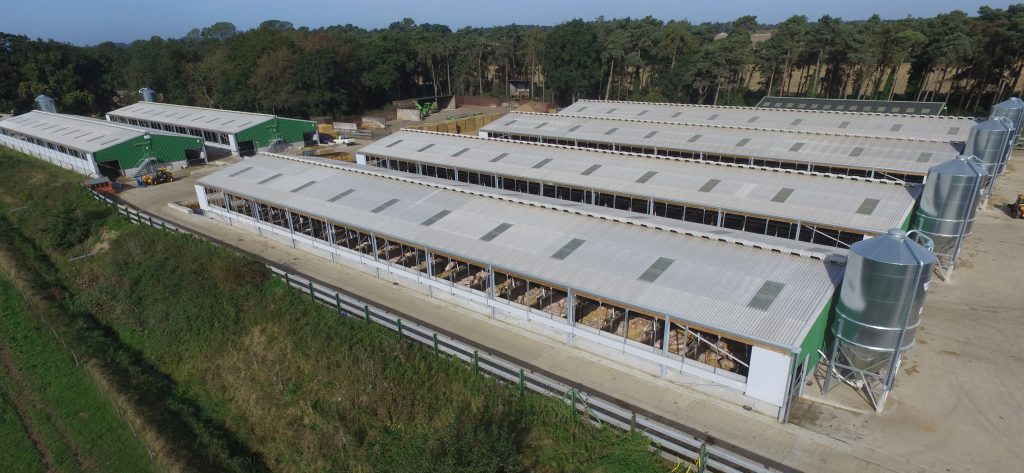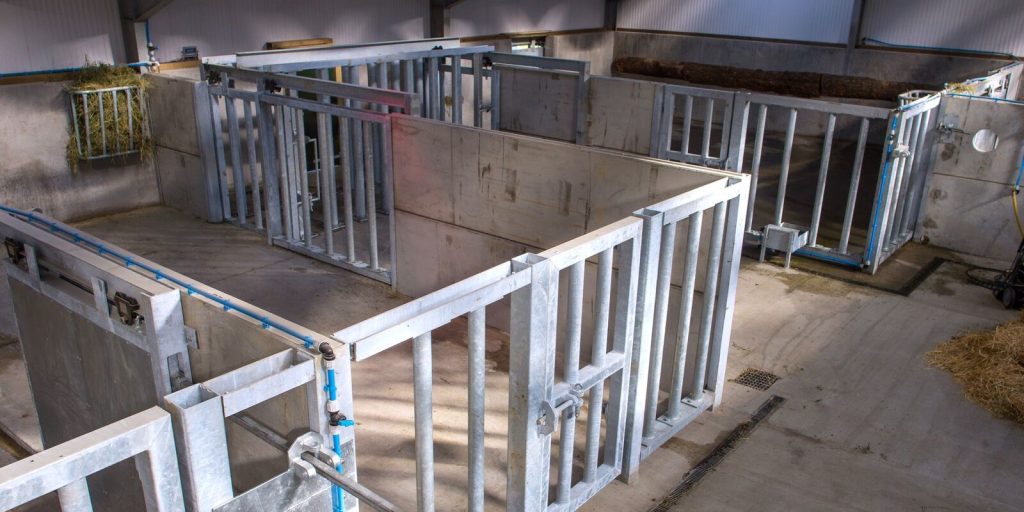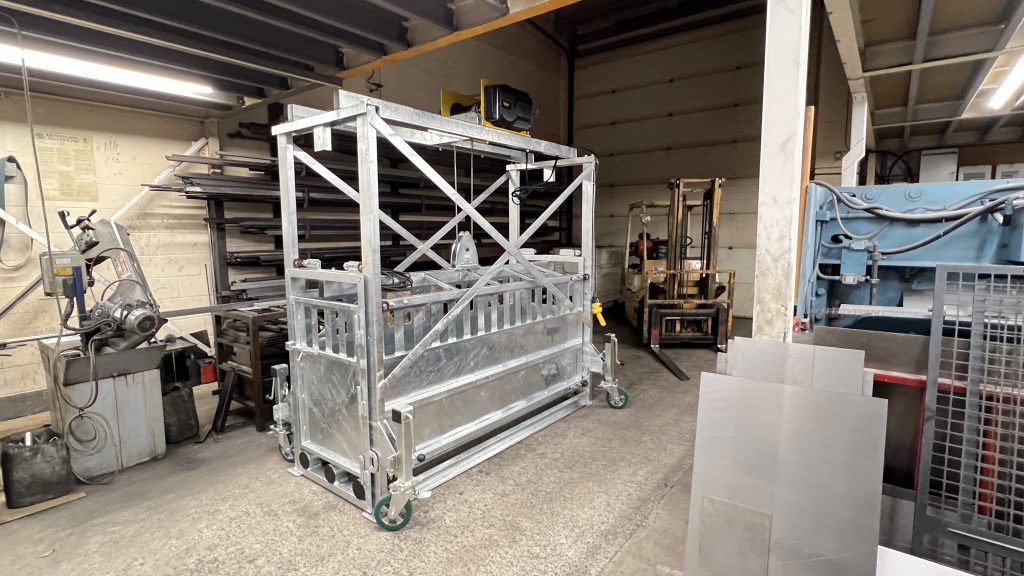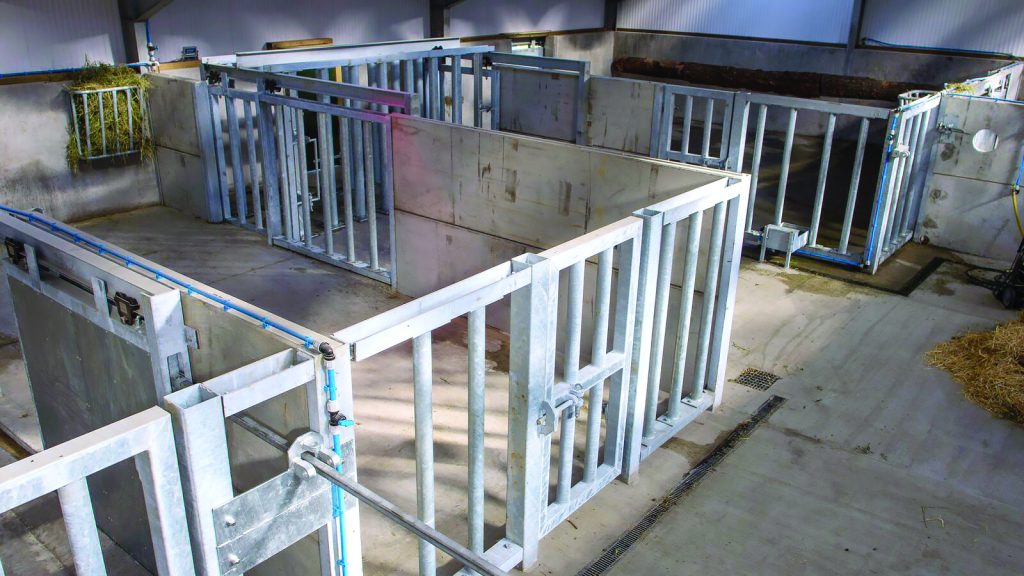Galvanizing for agricultural steel
Corrosive chemicals are prevalent in the agricultural industry. Without sufficient precautions in place, rapid deterioration of steel is inevitable. Even the weather can cause metal farm gates and buildings to collect moisture, speeding up the rate of corrosion.
Galvanizing helps protect essential equipment and structures from corrosion, extending its lifespan and reducing maintenance costs. As a result, you reduce your downtime and save money on repairs.

Benefits of galvanizing steel for the agricultural industry
Superior corrosion protection
Agricultural steel that is left outside is vulnerable to corrosion, as heavy rain can cause a build-up of moisture which speeds up the corrosion process. This includes your fencing, farm gates, and steel frame buildings.
Bad weather conditions aren’t the only enemy of agricultural steel. Chemicals such as pesticides and fertilisers, and cleaning chemicals around animal pens and equipment can also cause steel to corrode. The prevalence of chemicals in the agricultural and horticultural sector makes steel protection especially important.
Some of the consequences of corrosion include:
- Reduced material thickness, causing vital structures to disintegrate or collapse
- Damage to equipment, potentially making it unusable
- Reduced visual appearance of steel frame buildings, gates and pens
The rate of corrosion can be reduced with hot dip galvanizing. For small metal pieces such as fasteners and fixings, spin galvanizing can be used, providing the same level of protection as traditional hot dip galvanizing. Both of these steel protection services increase the lifespan of steel products and protect them against atmospheric attack.
Large steel capacity
A lot of agricultural steel equipment is large and heavy, meaning that manual methods of coating steel, such as paint, are time-consuming and physically taxing. The hot dip galvanizing process is a tested and trusted method to coat your steel taken care of by your local galvanizing company, reducing the time you spend on maintenance.
Joseph Ash Galvanizing is home to the widest and deepest galvanizing baths in the UK, at Telford and Bilston respectively. Our Chesterfield site also has a bath length of 16.2m, perfect for your large structural steel.

Improved sustainability
Many agricultural companies are looking to move towards sustainable agriculture practices. While initial priorities may be on improving the sustainability of direct farming processes, this can be extended to using sustainable materials, too. Both galvanized steel and the zinc it is dipped in during the galvanizing process are 100% recyclable, and both the galvanizing process and the end product fit into the principles of a circular economy.
Joseph Ash Galvanizing actively supports sustainable practices with our environmentally friendly galvanizing processes. We also have ISO 14001 for Environmental Management Systems.
Joseph Ash Galvanizing helps the agricultural industry
Don’t just take our word for it – see how we have helped agricultural companies below.
Galvanized pig lift for Gandalf and friends
We galvanized a pig lift for Beneath the Wood Sanctuary after they rescued 53 pigs from horrifying conditions at an illegal slaughterhouse in Pembrokeshire. Designeering, designer and fabricator of the innovative pig lift, created the lift for the sanctuary so their overgrown hooves could have a much-needed trim.
Pigs really can fly after all!

Galvanized rhino enclosure for Folly Farm

Folly Farm in Wales welcomed two very rare black rhinos to its family of animals, but needed a bespoke indoor facility that could separate and home the solitary animals. A building – now called the Kifaru Reserve – was constructed, providing durable corrosion resistance for the enclosures of these magnificent creatures.